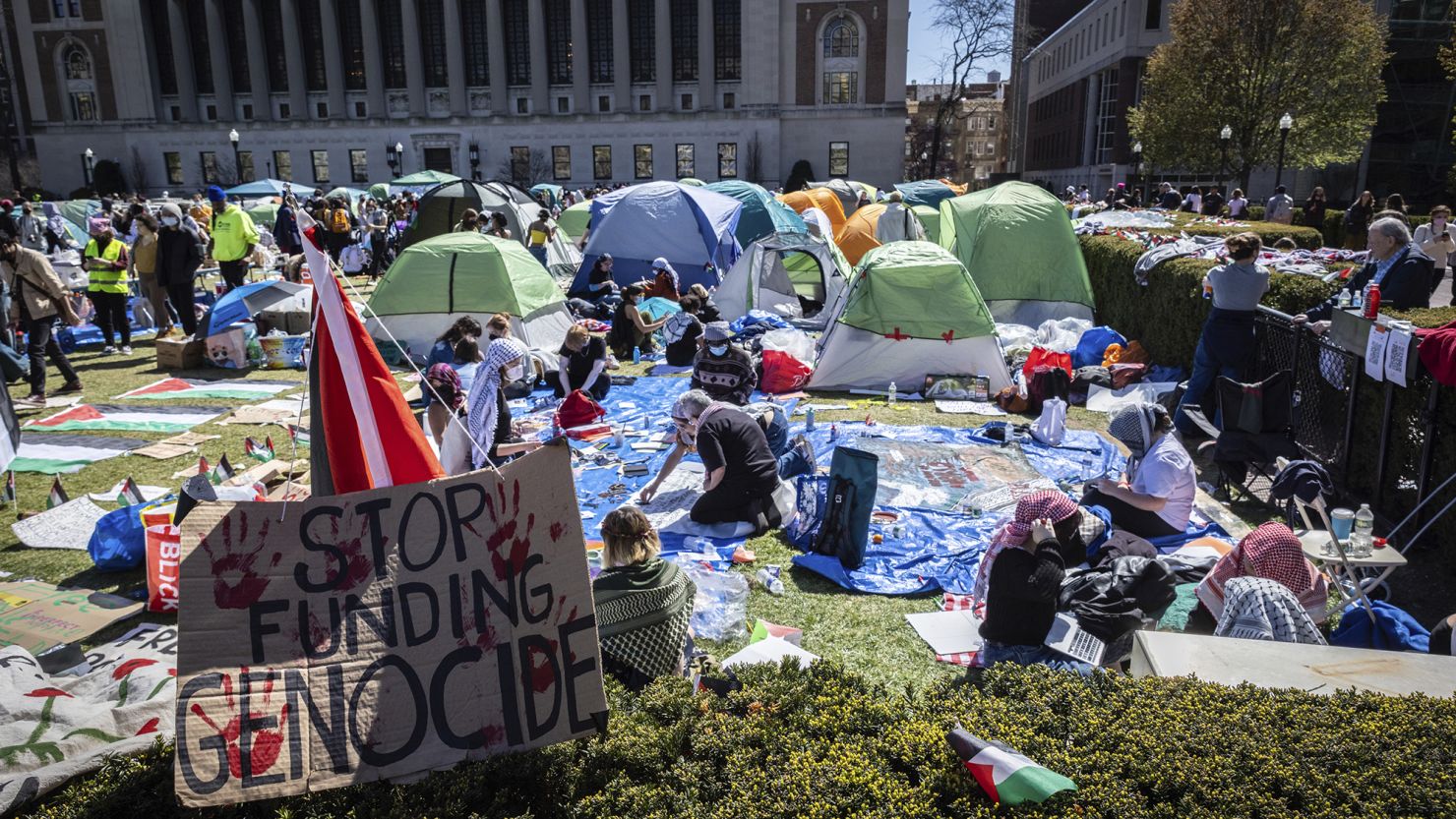Already a subscriber? Make sure to log into your account before viewing this content. You can access your account by hitting the “login” button on the top right corner. Still unable to see the content after signing in? Make sure your card on file is up-to-date.
Columbia University has confirmed that a student protest leader who said, “Zionists don’t deserve to live,” has been banned from the campus.
Khymani James, known for organizing pro-Palestinian protests, faced university action following his remarks, which included a statement that people should “be grateful that I’m not just going out and murdering Zionists.” These comments were highlighted in a video that resurfaced from earlier this year, coinciding with his previous discussions with school officials regarding a social media post about “engaging in physical confrontations with a Zionist,” where he expressed an intent “to kill.”
E👏X👏P👏E👏L👏L👏E👏D
— StopAntisemitism (@StopAntisemites) April 27, 2024
Earlier today, antisemitic scum Khymani James was kicked out of Columbia after his murderous rant targeting Jews went viral on social media. pic.twitter.com/I1IePQseIF
James issued an apology on Friday via the social media platform X, acknowledging that his words were “wrong.” His retraction came as the White House publicly decried his statements as “dangerous” and “appalling.” Deputy White House Press Secretary Andrew Bates expressed disgust at the advocacy for violence, stating, “These dangerous, appalling statements turn the stomach and should serve as a wakeup call. It is hideous to advocate for the murder of Jews.”
Further condemning the situation, the White House criticized the encouragement of “violence and physical intimidation targeting Jewish students” on college campuses. Bates emphasized, “While every American has the right to peaceful protest, calls for violence and physical intimidation targeting Jewish students and the Jewish community are blatantly Antisemitic, unconscionable, and dangerous — they have absolutely no place on any college campus, or anywhere in the United States of America.”
The controversy surrounding James’ remarks occurs amid increased tensions on university campuses nationwide, spurred by the Israel-Hamas conflict and the humanitarian crisis in Gaza. The resulting unrest has led to numerous arrests during demonstrations, which are seen by participants as extensions of a long tradition of anti-war activism.
In response to the ongoing disruptions, Columbia University has adapted by switching to a hybrid class schedule for the remainder of the semester and transitioning many courses online. Additionally, a group of students has filed a federal civil rights lawsuit against the university, alleging discrimination predominantly against protestors of Palestinian descent.






